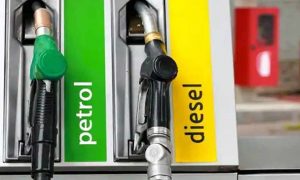In order to secure the availability of refined fuels for the domestic market, the government has increased restrictions on the export of diesel and petrol.
Read More:-LIC SIIP plan: A unit-linked insurance plan offering multiple benefits, check details and calculator
This comes after the government’s export restrictions on diesel and petrol ended on Friday.
India is the world’s third-largest oil consumer.
Read More:-Union Bank opens ‘Special Rupee Vostro’ account in Malaysia: All you need to know
The government placed a windfall tax on refined petroleum exports last year. It also required companies to sell 50 per cent of their petrol exports and 30 per cent of their diesel exports domestically until the end of FY23.
The windfall tax on diesel exports was reduced to Rs 0.50 per litre and nil on jet fuel (ATF) as of March 4, this year, while the duty on domestically produced crude oil was hiked considerably.
Read More:-New income tax changes in India for 2023-24; everything you need to know
The extension may come as a shocker for refiners, particularly private firms, from purchasing Russian fuel for re-export to countries such as Europe, which have suspended purchases of refined products from Russia as a result of its invasion of Ukraine.
Read More:-Google To Eliminate Free Snacks, Laundry Services, And Other Perks To Employees – Here’s Why
Last year the government imposed the rare restrictions after non-state refiners Reliance Industries and Nayara Energy, key Indian buyers of discounted Russian supplies, began reaping substantial profits by aggressively boosting fuel exports instead of increasing domestic sales.
Read More:-LIC Hikes Stake in Bata India to Over 5%
As a result, state refiners were forced to fill the hole and meet domestic demand by selling petroleum at lower, government-capped rates.



































